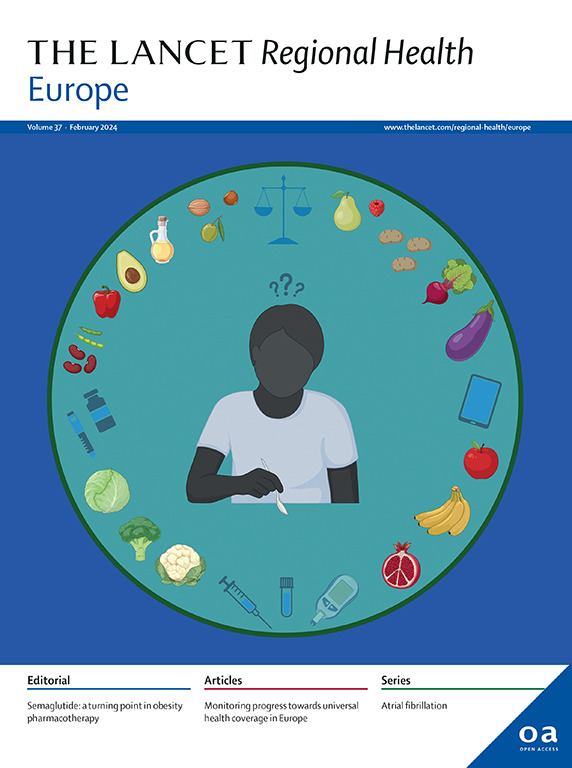2019冠状病毒病大流行对苏格兰选择性护理积压趋势、恢复工作和能力需求的影响(2013-2023年):一项描述性分析和建模研究
IF 13.6
Q1 HEALTH CARE SCIENCES & SERVICES
引用次数: 0
摘要
将COVID-19护理列为优先事项导致选择性护理大面积取消,给全球医疗保健系统造成了大量积压。虽然许多国家都描述了大流行在大流行早期阶段对选择性医院候诊名单的影响,但对长期影响和恢复工作的研究有限。方法我们对苏格兰11年期间(2013年1月1日- 2023年12月31日)的医疗保健系统进行了全国范围的分析,以评估大流行对选择性护理积压的影响,评估恢复工作,并估计清除积压所需的能力增加。我们的分析涉及国家、选修类型、地区和专业水平的评估。我们使用描述性统计来比较趋势,并使用统计建模方法(带有外生变量的向量自回归模型)来估计所需的产能增加。在大流行之前,等待名单逐渐增加(2013年:n = 285,149;2019: n = 385,859;六年内增加35.3%),然后在大流行期间迅速上升(2023年:n = 667,749;四年增长73.1%)。在最初的封锁期间(2020年4月至6月),选择性护理的能力大幅下降,到2023年底仍未完全恢复。这些模式在整个苏格兰大体上是一致的,当按选修类型、地区和专业分层时,也观察到类似的趋势。等待超过一年的转诊数量从2019年12月31日的3056例增加到2023年12月31日的78,243例(增长2400%)。为了消除大流行期间造成的积压,需要逐步提高能力,在三年内累积到20%。这相当于每年增加约6.67%,相当于每年增加32,302例。苏格兰的医疗保健系统在大流行前难以满足选择性护理需求,而大流行使本已困难的情况雪上加霜。到2023年底,大流行前的选择性护理能力尚未恢复。虽然需要大量的额外能力,但采取更广泛的系统级战略以有效解决等候名单积压问题至关重要。爱丁堡大学校长奖学金;英国健康数据研究所。本文章由计算机程序翻译,如有差异,请以英文原文为准。
Impact of COVID-19 pandemic on elective care backlog trends, recovery efforts, and capacity needs to address backlogs in Scotland (2013–2023): a descriptive analysis and modelling study
Background
Prioritisation of COVID-19 care led to widespread cancellations of elective care, creating a substantial backlog for healthcare systems worldwide. While the pandemic's impacts on elective hospital waiting lists during the early phase of the pandemic have been described in multiple countries, there is limited research on longer-term impacts and recovery efforts.
Methods
We conducted a country-wide analysis of Scotland's healthcare system over an 11-year period (January 1, 2013–December 31, 2023) to assess the pandemic's impact on the elective care backlog, evaluate recovery efforts, and estimate the capacity increase required to clear the backlog. Our analysis involved assessments at national, elective type, regional, and specialty levels. We used descriptive statistics to compare trends and a statistical modelling approach (Vector Autoregressive model with exogenous variables) to estimate capacity increases needed.
Findings
Waiting lists gradually increased before the pandemic (2013: n = 285,149; 2019: n = 385,859; 35.3% increase over six years) and then rose rapidly during the pandemic (2023: n = 667,749; 73.1% increase over four years). Capacity for elective care dropped substantially during the initial lockdown period (April–June 2020) and had not fully recovered by the end of 2023. These patterns were broadly consistent across Scotland and similar trends were observed when stratified by elective type, region, and specialty. The number of referrals waiting over a year increased from 3056 on December 31, 2019, to 78,243 (>2400% increase) by December 31, 2023. To eliminate the backlog created during the pandemic, a gradual increase in capacity, accumulating to 20% over three years is required. This corresponds to an annual increase of approximately 6.67%, translating to an additional 32,302 cases per year.
Interpretation
Scotland's healthcare system struggled to meet elective care demand pre-pandemic, and the pandemic has worsened an already difficult situation. Pre-pandemic elective care capacity had not been restored by the end of 2023. While substantial additional capacity is necessary, it is crucial to adopt broader system-level strategies to effectively address waiting list backlogs.
Funding
University of Edinburgh’s Chancellor Fellowship; Health Data Research UK.
求助全文
通过发布文献求助,成功后即可免费获取论文全文。
去求助
来源期刊

Lancet Regional Health-Europe
Multiple-
CiteScore
19.90
自引率
1.40%
发文量
260
审稿时长
9 weeks
期刊介绍:
The Lancet Regional Health – Europe, a gold open access journal, is part of The Lancet's global effort to promote healthcare quality and accessibility worldwide. It focuses on advancing clinical practice and health policy in the European region to enhance health outcomes. The journal publishes high-quality original research advocating changes in clinical practice and health policy. It also includes reviews, commentaries, and opinion pieces on regional health topics, such as infection and disease prevention, healthy aging, and reducing health disparities.
 求助内容:
求助内容: 应助结果提醒方式:
应助结果提醒方式:


